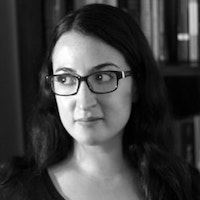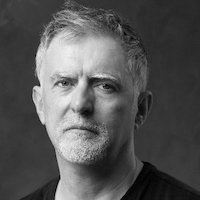Keynotes 2021

Jenann Ismael
“Nowhere Else but in the Here and Now”; Temporality, incompressibility, and creativity in human action"
There’s an image of determinism and that has had a grip on the philosophical imagination since Newton. It shows a universe unfolding with inexorable necessity from initial conditions that were in place at the beginning of time. Physics has changed a lot since Newton. The notion of an initial moment for the universe, for example, no longer makes good sense and we no longer think of the universe as unfolding in time. Even though classical physics remains deterministic, its laws are local, not global. And we have come to understand a good deal better the natural processes that produce order and the forms that creativity takes, especially in the biosphere. The result is a view of the natural world – and the place of human action in it – that is quite different from the one codified in the Newtonian image. I want to convey something of this image and what a particular events – e.g., Philip Larkin writing Aubade, a child thinking through a decision, you coming home after a long day and foraging in the fridge for dinner ideas – looks like in it.
Professor of Philosophy at Columbia University and affiliate of the Zuckerman Institute. Areas of specialisation: philosophy of physics, metaphysics, philosophy of science and the philosophy of mind.
jenanni.com

Stephen M Gardiner
Professor of Philosophy and Ben Rabinowitz Endowed Professor of the Human Dimensions of the Environment at the University of Washington, Seattle, where he is also the Director of the Program on Ethics. Areas of specialisation: applied ethics, climate change, environment, ethics, Greek (classical), human rights and political philosophy. Stephen’s current research focuses on global environmental problems (especially climate change), future generations, and virtue ethics.
faculty.washington.edu/smgard/wordpress/research

Michelle Kosch
"Recognition after Fichte"
In this paper, I describe a conception of recognition introduced by Fichte and related, by Fichte, to an account of rights on the one hand and to an account of the social genesis of reflective agency on the other hand. I describe some of the history of uptake of Fichte’s picture in 19th and 20th century social and political philosophy. Historians have misrepresented some of the details both of the ideas themselves and of the influence story, and one result of that is that some 20th century accounts of recognition have become hard to understand in a sufficiently precise way. (I am especially interested in Beauvoir's account, but the ideas I describe are important for understanding some other figures too.) I conclude with some thoughts on why a Fichtean account of the mechanisms of social stratification and social change might be more useful, for philosophers theorizing oppression, than competing Kantian and Hegelian accounts.
Michelle Kosch received her PhD from Columbia University in 1999, has held positions at the Søren Kierkegaard Research Center, the University of Michigan, and Johns Hopkins, and is currently Professor of Philosophy at Cornell. She has published two monographs (Freedom and Reason in Kant, Schelling and Kierkegaard, OUP 2006, and Fichte’s Ethics, OUP 2018) and articles on many topics and figures in post-Kantian European philosophy. Current projects include work on Simone de Beauvoir’s ethical thought and Fichte’s political philosophy.
philosophy.cornell.edu/michelle-kosch

Lewis Gordon
“Philosophy as a Public Enterprise”
This talk will distinguish between philosophy and professional philosophy to offer a report on the state of philosophy today. Themes that will be touched on in this lecture would be the importance of the historic mission of philosophy beyond the hegemony and reductionism of “western” philosophy, the unfortunate decline, and at times erasure, of that mission under the weight of Euromodern colonialism, Capitalism, and their concomitant project of colonizing knowledge, the challenge of transcending disciplinarily decadent conceptions of philosophy, and what it means to be a philosopher committed to the public today.
Lewis R. Gordon is Professor and Head of the Department of Philosophy at UCONN-Storrs; Honorary President of the Global Center for Advanced Studies; Visiting Professor at the University of Johannesburg, South Africa; and Honorary Professor in the Unit for the Humanities at Rhodes University, South Africa. He previously taught at Brown University, where he founded the Department of Africana Studies, and Temple University, where was the Laura H. Carnell Professor of Philosophy and founder of the Center for Afro-Jewish Studies and the Institute for the Study of Race and Social Thought. He co-edits with Jane Anna Gordon the journal Philosophy and Global Affairs, the Rowman & Littlefield book series Global Critical Caribbean Thought, and, with Rozena Maart, Epifania Amoo-Adare, and Sayan Dey, the Routledge-India book series Academics, Politics and Society in the Post-Covid World. He is the author of many books, including Freedom, Justice, and Decolonization (Routledge, 2021) and the forthcoming 论哲学、去殖民化与种族 (“On Philosophy, Decolonization, and Race”), trans. Li Beilei (Wuhan, China: Wuhan University Press, fall 2021) and Fear of Black Consciousness (Farrar, Straus and Giroux in the USA and Penguin Book in the UK; German translation, Ullstein Verlag in Germany; Portuguese translation, Todavia in Brazil, forthcoming 2022).
Journal of Philosophy and Global Affairs
Global Critical Caribbean Thought Book Series
philosophy.uconn.edu/person/lewis-gordon

Kate Manne
What is Gaslighting?
Gaslighting is often glossed as an interpersonal practice involving manipulating the victim into feeling "crazy." In this talk, I moot various desiderata for an adequate account of gaslighting, and argue for a broader account of the phenomenon—and, ultimately, a definition of gaslighting which allows that it can (a) be a political and cultural practice rather than an interpersonal one, (b) proceed by making victims feel negative moral emotions (such as guilty or ashamed) for deviating from the gaslighter's preferred narrative, and (c) be defined functionally as a process which, roughly, makes the target feel defective for so doing. I close by considering practices that encourage fruitful disagreement as an antidote to gaslighting.
Associate Professor of the Sage School of Philosophy at Cornell University. She is the author of Down Girl: The Logic of Misogyny and Entitled: How Male Privilege Hurts Women. Areas of specialisation: moral philosophy (especially metaethics and moral psychology). feminist philosophy, and social philosophy.

Peter Godfrey-Smith
The Development and Plausibility of Materialism
The talk will first look at the development of materialist (or physicalist) accounts about the mind from the mid 20th century onwards — not giving a detailed history, but isolating some choices, changes of direction, and the like that have shaped recent discussions. (What is the role of computers? What is the role of the brain sciences? What about evolution?) I’ll then outline the approach that I think is most defensible, and discuss why we might believe a view of this kind. This more positive section will be the larger part of the talk; the role of the history is to help get us there.
Professor of Philosophy at the University of Sydney. Areas of specialisation: philosophy of biology and the philosophy of mind, and the area of intersection between these fields. Peter also works on pragmatism (especially John Dewey), problems of evidence, and other parts of philosophy of science.

